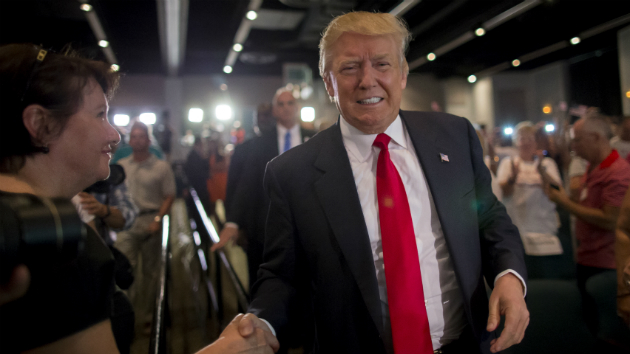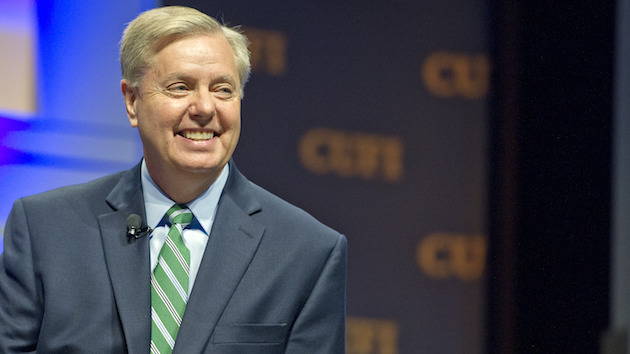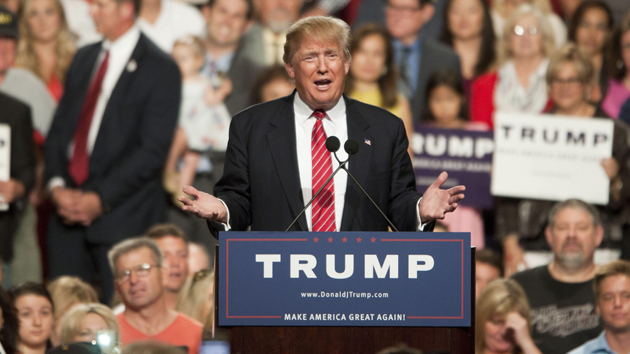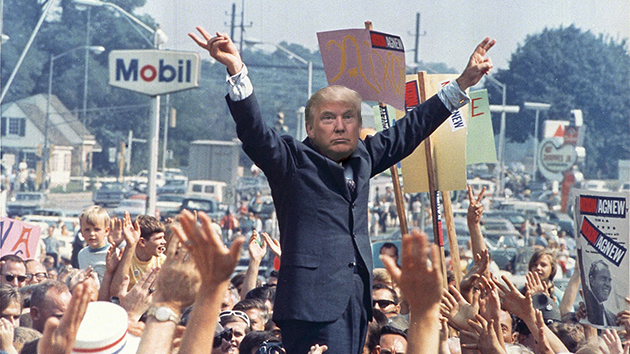
Brian Cahn/ZUMA
Donald Trump is certainly unlike most Republican presidential candidates of recent years. But as he has come to dominate the GOP’s 2016 contest, there’s been a touch of Richard Nixon in the tirade-friendly tycoon. At least, Nixonian rhetoric. In the past few weeks, Trump has deployed some of Tricky Dick’s most memorable flourishes. Is this a mere coincidence? One of Trump’s top political strategists is Roger Stone, a veteran political operative and unapologetic dirty trickster who is an ardent fan of the scandal-ridden but politically savvy Nixon. (On his website Stone, who has a tattoo of Nixon on his back, calls himself a “legendary American Republican political consultant who has played a key role in the election of Republican presidents from Richard Nixon to Ronald Reagan to George H.W. Bush and George W. Bush.”)
Whether Stone is prompting Trump to channel the only president who resigned, here are some of the signs that Trump is feeling the Nixon spirit.
- The Silent Majority. At a campaign rally in South Carolina on Tuesday, Trump declared, “There is something happening. You know there used to be the expression, many of you have heard it, and for some reasons for years, it hasn’t been….The silent majority. There’s a silent majority out there. We’re tried of being pushed around, kicked around, and acting and being led by stupid people. They’re stupid people.” Nixon popularized the “silent majority” term in a November 1969 speech, in which he pleaded for support for his war effort in Vietnam. He referred to those Americans not protesting the war or joining the counterculture as the “great silent majority.”
- Law and order. Following the recent shootings in Chattanooga, Tennessee, which claimed the lives of five service-members, Trump exclaimed, “Whether it’s Islamic or anything else, it’s getting worse. We’re losing law and order.” Law and order—that was a core element of Nixon’s 1968 presidential campaign. As the Nixon presidential library puts it, “In January 1968, Nixon decided to once again seek the nomination of the Republican Party for president. Portraying himself as a figure of stability in a time of national upheaval, Nixon promised a return to traditional values and ‘law and order.'”
- A secret plan to end the war. In a recent interview with the Des Moines Register, Trump asserted that he has a plan to destroy ISIS: “I have an absolute way of defeating ISIS, and it would be decisive and quick and it would be very beautiful. Very surgical.” What is this plan? Did it involve ground troops? Drone strikes? Trump wouldn’t say. He was keeping it a secret: “If I tell you right now, everyone else is going to say, ‘Wow, what a great idea.’ You’re going to have 10 candidates going to use it and they’re going to forget where it came from. Which is me.” During the 1968 campaign, Nixon promoted—or, at least, allowed to stand—the impression that he had a secret plan to end the Vietnam War. But he didn’t. The war continued for years after his inauguration—until Nixon and Henry Kissinger negotiated with the North Vietnamese a US withdrawal. In the meantime, thousands of US GIs died.
- And then there’s this.
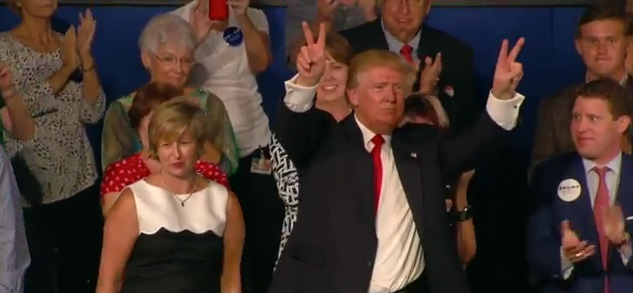
and
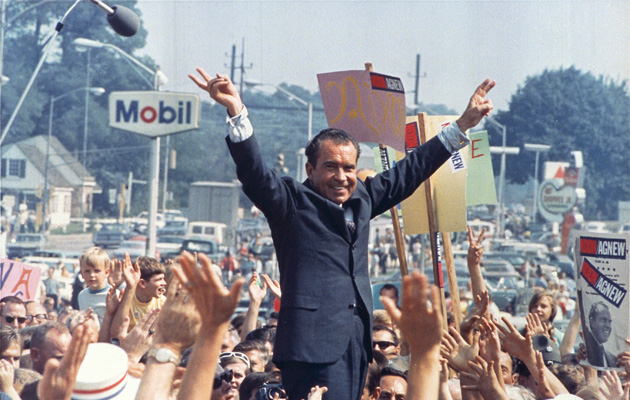
Of course, there are profound differences between the two men. Nixon was an insecure introvert, and Trump is…well, not that. Nixon normalized relations with China, and Trump uses China as a political piñata. And one of Nixon’s favorite restaurants was Trader Vic’s in the Plaza Hotel in New York City, and Trump shut it down after he bought the hotel in 1988. But Trump was an admirer of the Watergate-scarred president. In a 1990 book, Trump observed, ”I’ve seen some real killers in my line of work, but Richard Nixon makes them look like babies. The man is a rock, like him or not.”



